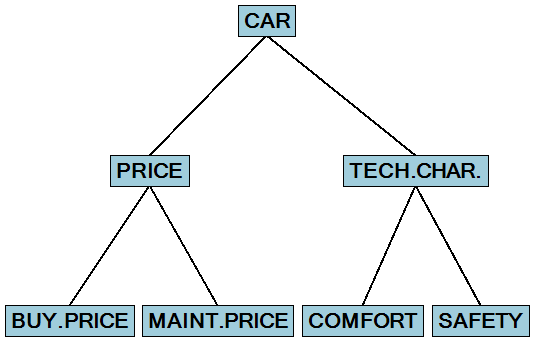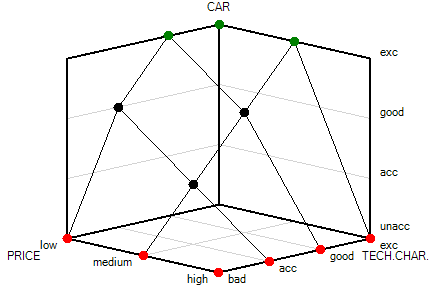DEX Method
DEX (Decision EXpert) is a is a hierarchical, qualitative, rule-based multi-criteria decision analysis (MCDA) method. It is particularly suited for sorting/classification decision problems. DEX puts special emphasis on the transparency, comprehensibility, consistency, and completeness of decision models, as well as on methods for the analysis, justification, and explanation of decisions.
The DEX approach relies on using software tools that actively support the decision maker in both the creation and utilization stages of the process. We are the principal developers of DEX, dedicated to creating high-quality, state-of-the-art and free-to-use DEX software.




